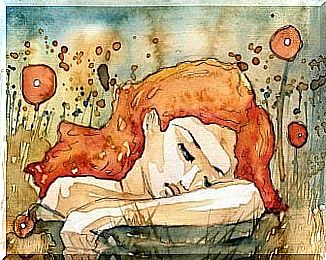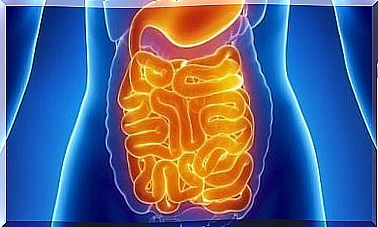7 Signs Of Emotional Poisoning
We need to take time to cultivate our inner life and to cleanse ourselves of our emotions. Being intoxicated can make us see things in an extreme way: we then interpret the words and actions of others very badly.

The following speeches could be those of someone who is experiencing the full effects of emotional intoxication, or who is experiencing emotional problems related to stress, anxiety and depression.
Do you recognize yourself or do you identify one of your relatives in these little texts?

We easily understand the effects of alcohol poisoning. We know that this leads to impaired perception, slower heart rate, decreased ability to react, etc.
But, are we able to interpret the signals that tell us that we are intoxicated by our own emotions?
If you are in an emotionally busy time, you may need to cleanse yourself of some of your emotions.
Emotional intoxication is the consequence of the lack of attention that we pay on a daily basis to our emotions, and to our inner life.
1. Be constantly on the defensive
As we have just said, an emotionally intoxicated person activates a kind of self-protection mode, which will allow him to protect himself from anything that can harm him.
When our emotions are clouded, we may interpret the words and actions of others as personal attacks.
In fact, we have very little presence in our own life, and we only act in an extreme way.
This happens because our self-esteem is reduced to heartache, and we feel vulnerable all the time.
Our emotions block us and only allow us to focus on the negative. Therefore, any failure or refusal seems to us to be the end of the world.
Therefore, we totally distort the words and desires of others.
We react aggressively and disproportionately, believing that we need to protect ourselves from danger that really only exists in our mind.
2. Emotional intoxication and altered perception
By observing the environment around us through the prism of our emotions, it is likely that we are not listening to ourselves or those around us.
You may feel like listening to yourself is just a waste of time, but being in endless conflicts with others can bring you a whole host of problems.
Nervousness, impatience and uncontrolled emotional reactions often result from this type of behavior.
We just need to stop for a few seconds to think, listen to ourselves and pay attention to those around us.
3. Being too critical
One of the reasons that it is difficult to communicate with an emotionally intoxicated person is that they are absolutely uncompromising. Neither nothing nor nobody finds favor in his eyes.
If you feel like you behave this way, it is possible that in your desire to be in control and nothing interfering in your existence, you are not giving yourself any leeway.
Try to be kinder to yourself and to others.
4. Emotional intoxication and emotions on edge
If you feel like you are intoxicated, you have probably realized that your insecurities have emerged from within to control your life.
You are very responsive to the slightest event, and you often get on the defensive.
Your self-esteem is totally flat, and you are vulnerable to whatever comes up in your life.
Chances are, you don’t feel like you have the strength to clearly understand how you feel, who you are, and what you are really capable of doing.
As a result, you certainly tend to think that you need someone to supplement your deficiencies, to protect you and to lead your day-to-day life, because you yourself feel incapable of doing so.
Obviously, you have to work on this aspect in order to revive your autonomy and your emotional identity.
5. Be turned off
The emotional overload that you carry on your shoulders can tend to fog you up or even turn you off.
The fact of feeling extinct means having no more strength, and no longer being able to get up on your own.
When your vitality disappears, you tend to close the curtains of your soul and protect yourself from your own feelings, thereby relinquishing much of your inner Self.
Ultimately, making decisions and putting up with this emotionally intoxicated situation takes all your strength and you no longer have the energy to achieve your daily goals.
6. No longer being able to move forward
When we are inundated with our emotions, we are unable to mentally filter our emotional and sentimental reactions.
As a result, our ability to communicate, make decisions and move towards our goals is completely extinguished.
We are therefore no longer able to respond to certain situations adequately, and we no longer know how to deal with them at all.
Being emotionally intoxicated can make it difficult for you to think before you speak, or to take a step back from your surroundings. Your attention and memory become very selective.
This phenomenon worsens in a conversation because the words you listen to and take away from the discussion corroborate your deepest frustrations and problems.
You must always have a cool head, an always warm heart and an always open hand, said Confucius.
A hot reaction is the manifestation of taking control of our emotions, and a great power of direction given to our impulses.
Be yourself and do not let yourself be guided by the contrary feelings that also reside in you.
7. Being subject to emotional vertigo and emotional intoxication
We are afraid to let go of what has accompanied us so far, or what has been by our side for a long time.
We are unable to understand that, in order to get better, sometimes we have to give up certain things.
When our emotions take hold of us, we face a huge emotional void deep inside us.
This happens because we believe that even though our emotional architecture is falling apart, some basic pillars of our personality will never be able to break.
This is obviously a mistake, because this altered perception is generated by great fatigue and emotional blockage, two infected fruits produced by emotional intoxication.









